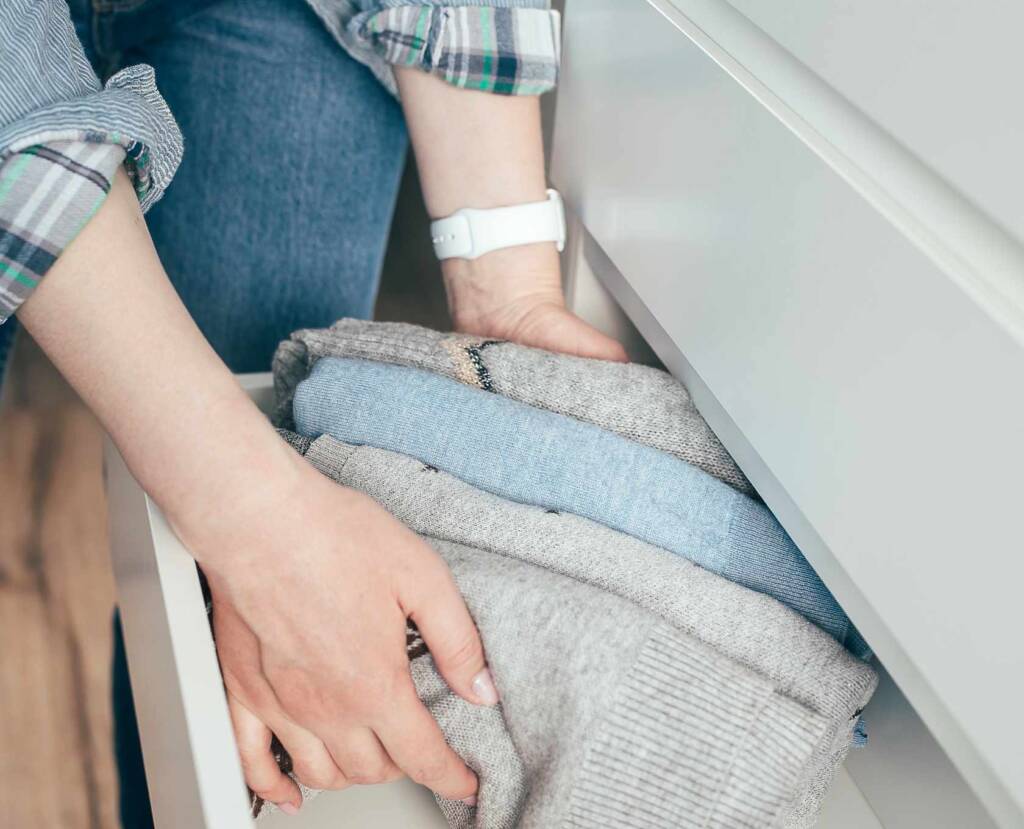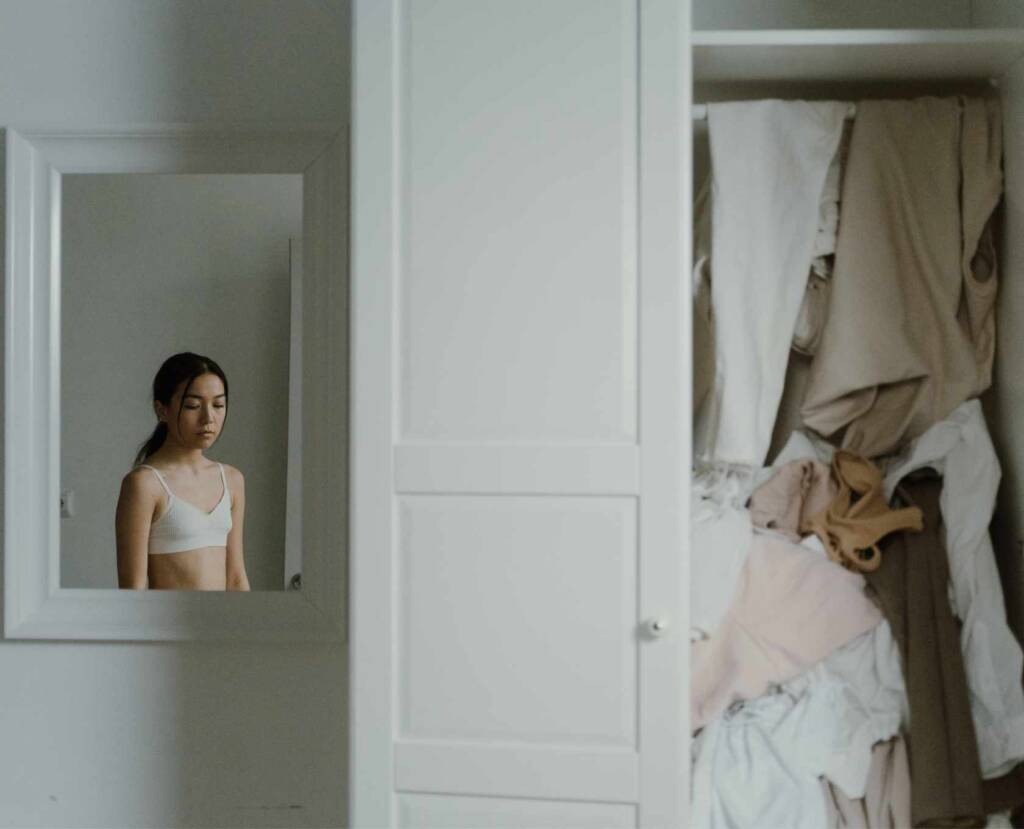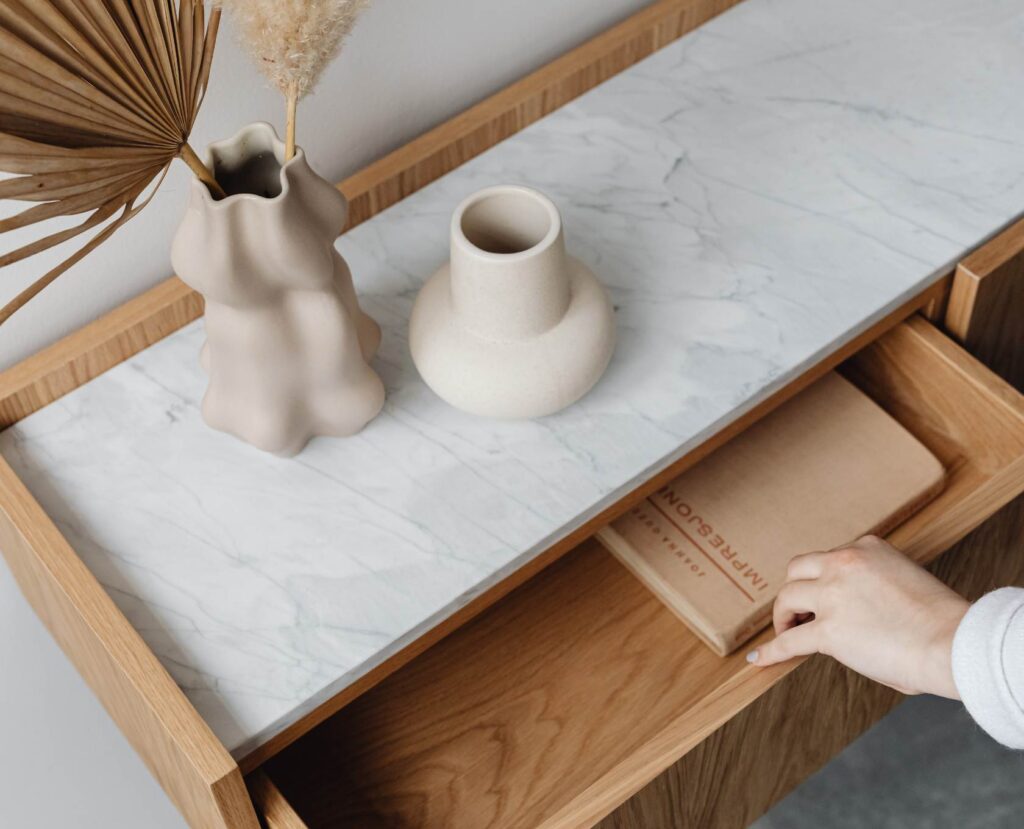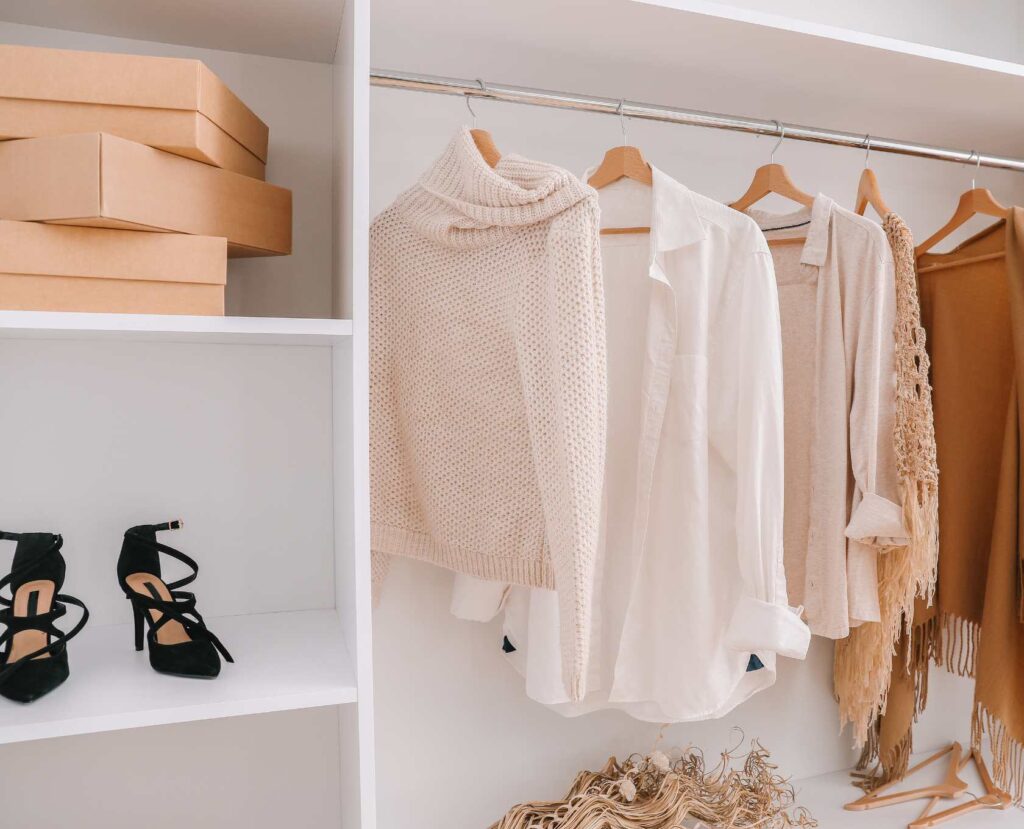Disclaimer: This post may contain affiliate links. This means that if you click on the link and purchase an item, I'll make a small commission to keep the lights running. Furthermore, as an Amazon Associate I earn from qualifying purchases. I recommend only products I have personally tried and believe can bring value to you.
There’s no denying it. We live in a world that places a lot of score on material possessions. Our self-image and social standing is dependent on having the latest gadgets, on flaunting the latest fashion. The reality is, we need stuff to get by and to make our lives easier. But stuff quickly starts becoming clutter when we hold on to things we don’t really need or use. That’s where we need self-awareness, so we can slowly build up to making small mental shifts. This is where cultivating a ‘declutter mindset’ comes in.
When I was growing up, one of the core values that I subconsciously learnt was to not be wasteful. My parents worked hard to make sure my sister and I led a comfortable life. We were taught to keep things carefully, store them away in case we need them on a rainy day.
I didn’t realize it back then, but I’d feel guilty about throwing stuff. So I kept stuff, even stuff I knew I’ll never need. Old notebooks full of chemistry notes, clothes I didn’t really wear, toys that had memories that I couldn’t bring myself to let go of.
It was only very recently in life that I was able to recognize this guilt for what it was. I was holding on to things, largely out of fear. It took a while, but I learnt not to judge myself. Instead, I would just notice and try to understand. With time, I’ve learnt to recognize the pattern and slowly move past the guilt of letting stuff go.
Once I started to declutter stuff from my life – I felt free not only of the stuff, but also of the burden of guilt. And that was a feeling of great freedom and peace. This feeling of lightness, of calm – became a strong ‘why’ for my declutter journey.
In this article, I will help you recognize and overcome feelings of attachment that may be holding you back from letting go of things in your home. With key mental shifts, I’ll help you cultivate a declutter mindset – so you can create more space for fulfillment and calm in your life.
- Why You Need a Declutter Mindset
- Mental Shift #1: Focus on Experiences over Possessions
- Mental Shift #2: More isn’t Always Better
- Mental Shift #3: Recognize the Value Of What You Have
- Mental Shift #5: Reframe Your Relationship with Stuff
- Mental Shift #6: Overcoming Fear of Scarcity
- Mental Shift #7: Practice Mindfulness in Consumption
Why You Need a Declutter Mindset
Decluttering your life can be a rewarding journey that can bring about beautiful changes in your life.
Here are just a few benefits of having a ‘declutter mindset’:
- You start to appreciate the things that really matter in your life – things you love ‘shine’ more
- You create a sense of calm – letting go of clutter has been linked to lower stress levels
- You can always find what you need
- You give things away to someone who needs them more
- You create more space to own things actually add value to your life
The form you have selected does not exist.
Mental Shift #1: Focus on Experiences over Possessions

Memories are not in things, they are in you.
This is a crucial mindset shift needed to declutter.
It may seem extremely hard to let go of things that have a story, a personal memory. But all you need to do is make a key distinction.
Giving away things, doesn’t mean you’re erasing their memory, their meaning from your life. That will continue to live on inside of you.
Just because you let go of that old t-shirt your mum gave you, doesn’t mean you’ll forget that day you spent on the beach with her.
This way you actually focus more on the experience that lives inside you, than on the physical object.
Objects can disappear, they can break, they can spoil. But your experiences and memories, they live on forever.
Mental Shift #2: More isn’t Always Better

Does having more stuff guarantee happiness? Does having the latest gadget guarantee success? Probably not.
In fact, living with excessive clutter has been linked to several psychological issues like hoarding disorder. In some cases, it may even be a symptom of depression.
On the other hand, reducing clutter has been shown to reduce cortisol – the stress hormone.
I myself try to follow an Essentialist philosophy when it comes to owning things.
Mental Shift #3: Recognize the Value Of What You Have

Gratitude is a powerful tool to help you appreciate what you already have.
When you slowly start to declutter, things you truly cherish and enjoy – shine forth.
Acknowledge and recognize these little things. Practice gratitude and soon you will come to realize that you actually already have all you need.
Last year, when decluttering my closet, I gave away three big bags full of clothes. A feeling that actually made me feel much fuller. I felt a surge of gratitude. And that made me realize that I actually had everything I needed in my closet.
I treasure what I own so much more now. I focus on quality over quantity. And this helps me routinely declutter what I no longer need or love.
Mental Shift #5: Reframe Your Relationship with Stuff
View possessions as tools, not identities.
Often we buy stuff that feeds into our idea of self, our sense of style, our personality.
Sometimes this is what holds us back when we need to let things go. We feel like we’re letting a part of us go.
The truth is, our self-worth, our identity is so much beyond the things we own. It’s ever-evolving – it’s never fixed.
The ultimate goal is actually to move past the idea of self-identity, but in the meantime it helps to recognize that things are just things.
Take a step back and you’ll realize that things we own are just tools. They are meant to serve a functional purpose in our life.
So the next time when you’re hesitating to let go of that band t-shirt – remember you’re not letting go of your ‘rock-chic’ identity – you’re just letting go of a t-shirt you no longer wear.
Mental Shift #6: Overcoming Fear of Scarcity

Our hardwiring, our upbringing will tell us that we need to hold on to things because we may not have enough tomorrow.
The biggest mental shift we can make here is to trust in abundance.
We tend to think that things will run out and so it’s best to save them for a future date. This is called a ‘scarcity mindset’.
But think about this for a second.
We are not cavemen fighting and gathering for survival. If we really need something in the future, we will have the resources to find it. They’re no predators threatening the very prospect of this.
So all that really matters is today. And today, you have everything you need.
So don’t be afraid to let go of things that don’t serve you anymore.
No ‘what if I need it someday’, no ‘I’ll keep it just in case’. If you haven’t used it for a year – you’re probably never going to. Besides, it will bring greater joy to someone who truly needs it.
Mental Shift #7: Practice Mindfulness in Consumption

Be fully aware and present of your actions, intentions and consequences when you’re considering making a purchase.
A few actions that can help:
Take Pause
Before a purchase, pause and ask yourself why you want or need the item.
Does it align with your values? Will it add meaning and value to your life?
Investigate the Intention
Why are you buying this item?
Out of genuine necessity or to fulfill an emotional need? Be honest and non-judgemental with yourself about your motivations.
Make Conscious Decisions
Think about the larger impact behind your purchase.
Consider environmental, social, and ethical factors. Opt for sustainable, quality products and be conscious of your choices.
Avoid Impulse Buying
When you feel the impulse to buy something on a whim, take a step back.
Everytime I feel the sudden urge to buy something pretty, I force myself to take another day.
If after a while, I still feel like that thing is going to add value to my life – only then do I buy it.
Focus on Quality and Durability
Bring in a degree of mindfulness into your shopping routine by paying attention to details such as quality, durability, and whether the item serves a genuine purpose in your life.
Quality, timeless pieces will add much more value to your life.
Making a mindset shift to declutter is by no means easy. It requires you to understand your own tendencies and patterns. If you want more insight into this, I’ve delved deeper into the psychology of mess.
In the meantime, I hope these mental shifts can help you get into the ‘declutter mindset’ by recognizing emotional patterns and overcoming “stuff guilt”. It’s always going to be a journey, so be patient and kind with yourself.
If you need more resources, check out my articles on where to start decluttering and how to declutter fast.
You can also download my printable Complete Home Declutter Checklist to take some burden off of you.
Don’t give up. I promise you the journey of letting go and minimizing stuff you don’t need is extremely rewarding in the long run.




